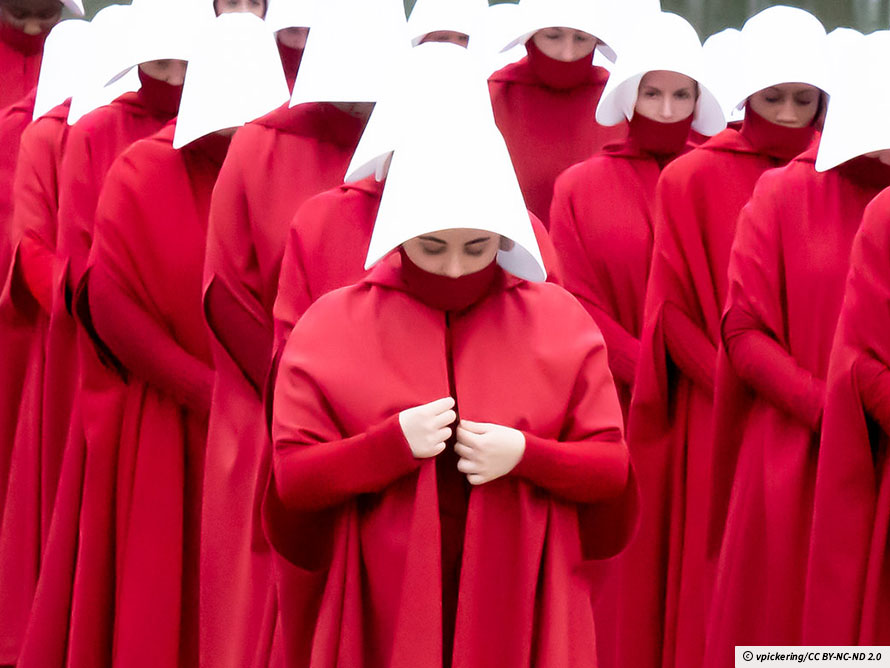In mid-1980s' Massachusetts, a group of conservative religious extremists has seized power to form Gilead, a repressivePreventing personal freedom. state in which women cannot vote, divorce is illegal and gay people are executed. The dystopianRelating to an imagined society where there is great suffering or injustice. novel follows Offred (a Handmaid) as she is forced to adapt to life under this harsh regime. One of Margaret Atwood's best-known works, The Handmaid's Tale imagines a world in which citizens are stripped of their fundamental rights, and the very nature of freedom is questioned.
The Handmaid’s Tale

Glossary
Repressive - Preventing personal freedom.
Dystopian - Relating to an imagined society where there is great suffering or injustice.
New England - A region of the northeast USA including the states of Maine, Massachusetts, New Hampshire, Vermont, Rhode Island and Connecticut. Some of the first European settlers in the region were people from England.
Patriarchy - A system of society where men hold power and women are excluded.
Banal - Boring and unimportant.
Fundamentalist - Believing in the strict, literal interpretation of a religious text.
Theocracy - A government run by religious leaders, usually according to religious law.
Totalitarian - When a political system or leader requires complete subservience to the state. In a totalitarian system, people are not allowed to express their own opinions.
